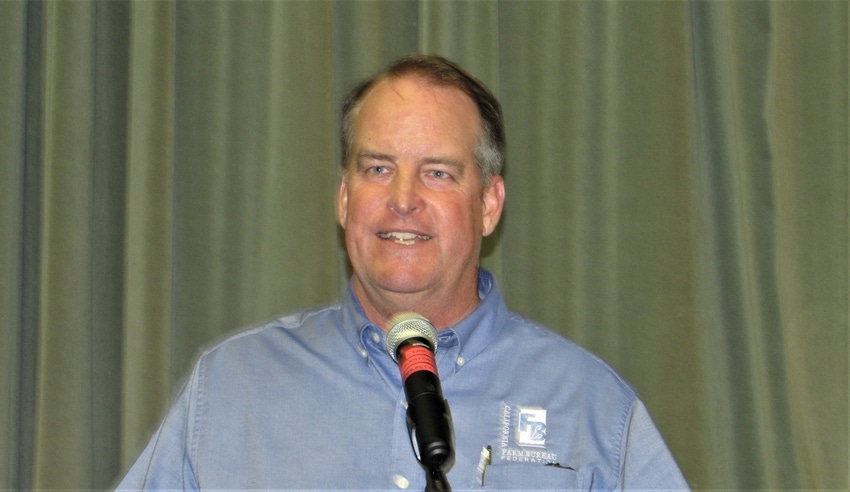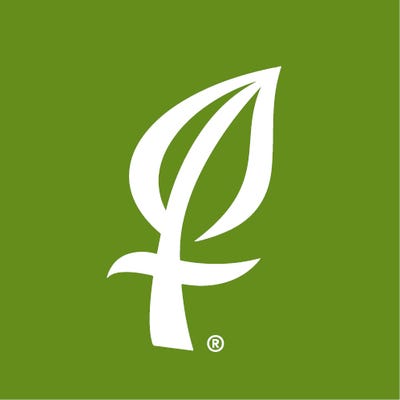December 8, 2020

Farmers and ranchers responded quickly and responsibly to the COVID-19 pandemic, California Farm Bureau Federation president Jamie Johansson said in opening remarks Monday during the organization's 102nd Annual Meeting.
Growers scrambled to adjust working conditions and provide personal protective equipment to employees, and to assure a worried public about the continued availability and safety of food and farm products, he said.
“Make no mistake about it, when it comes to worker safety and when it came to our families’ wellbeing, farmers and agriculture led the way,” Johansson said in a webcast from the Farm Bureau building in Sacramento. The meeting is being held virtually through Wednesday.
“We’ll continue to work as we move forward through this pandemic, looking into the future of what we need to do to take care of our employees,” he added, noting in particular the need to remove roadblocks to creation of more and better housing.
His remarks came during a speech in which he called for "farmer-led solutions" to issues confronting agriculture and pledged the organization would respond to state government actions on the pandemic, climate change and other policies.
Describing agriculture as “the original green industry,” Johansson said state and federal climate policies must recognize the positive contributions farms and ranches make to the environment. He also urged the state to act quickly and decisively to address chronic water shortages and the increasing wildfire threat.
The annual scourge of wildfires “shouldn’t become normal,” he said. “We should be outraged.” Noting that the state has directed significant resources toward wildfire prevention and forest management, he said Farm Bureau will review how effectively those resources have been used and will advocate for timely action.
Johansson celebrated the defeat of a November ballot initiative to create a split-roll property tax, saying farmers and ranchers “changed the debate” on Proposition 15 by describing its likely impacts on food production and prices. With the state government facing budget deficits, he warned of potential new efforts to raise taxes and fees, saying the state can’t continue to balance the budget “on the backs of the California taxpayers.”
With a new administration about to take office in Washington, D.C., Farm Bureau will advocate for balanced environmental, immigration and trade policies, he said.
“We have challenges ahead of us, but we will continue to speak out and make a difference,” Johansson said.
Among other news from the convention's first day:
Leopold Award winners
Ward and Rosie Burroughs, and the Burroughs Family of Farms were announced as the recipient of the 2020 California Leopold Conservation Award. The Denair area farm family receives $10,000 and a crystal award for being selected.
The Burroughs and their children are co-owners of five diversified, sustainable farms in Stanislaus County that produce organic almonds, beef, chicken and eggs, dairy, olives and hay. Exceeding organic standards, the family continually refines and enhances their systems to reduce water use and improve soil fertility, a news release explains.
This system prioritizes biodiversity, and seeks to replenish groundwater aquifers, as well as enhance watershed and ecosystem health, while supporting their growing and diverse family enterprises.
“California’s environment and communities are facing some challenges, not the least of which are a global pandemic and another year of destructive wildfires,” said Ashley Boren, Chief Executive Officer of Sustainable Conservation, which has co-sponsored the award since its launch in California in 2006. “The Burroughs family’s efforts to incorporate sustainability into every level of their operation is a testament to their willingness to experiment, adapt and craft new solutions.
"California agriculture sustains our state, our country and the globe, and families like the Burroughs model the forward-thinking conservation and environmental ethos we need not just to survive, but to thrive," Boren said.
Given in honor of renowned conservationist Aldo Leopold, the award recognizes farmers, ranchers and forestland owners who inspire others with their dedication to water quality, soil health and wildlife habitat management on private, working land.
Retriever named top dog
Jade, a 4-year-old black Labrador retriever who works on her family’s walnut farm in Tulare County, has earned the Grand Prize in the first California Farm Bureau Farm Dog Contest. The award was announced Monday during the CFBF meeting.
Lindsey Swall, an agriculture student at California State University, Fresno, won the $1,000 prize for her photos and essay on Jade, according to a news release..
In her essay, Swall said Jade “has a confident, selfless and gentle personality that is contagious and makes us better people,” and also highlighted how dogs offer farmers emotional support.
“Farmers work hard to provide for others, and their job is never ending. Farming can be taxing both mentally and physically, so it takes a strong dog to support us in what we do,” she said. “Mental health is a topic often neglected on the farm, which is why it is important to highlight the work that dogs do to support farmers.”
Open to Farm Bureau members, with support from Nationwide, the Farm Dog Contest asked entrants to submit photos and a brief story about their dog. According to the CFBF:
First place in the contest, and a $500 prize, went to Colusa County farmer Brett Perry and his Australian shepherd, Hondo.
The second-place prize, and $250, was earned by El Dorado County rancher Jim Davies and his McNab shepherd, Tip.
Third place, and $100, was awarded to Santa Barbara County farmer Judy Paulson Dewey and her Groenendael Belgian sheepdog, Brugge.
About the Author(s)
You May Also Like






